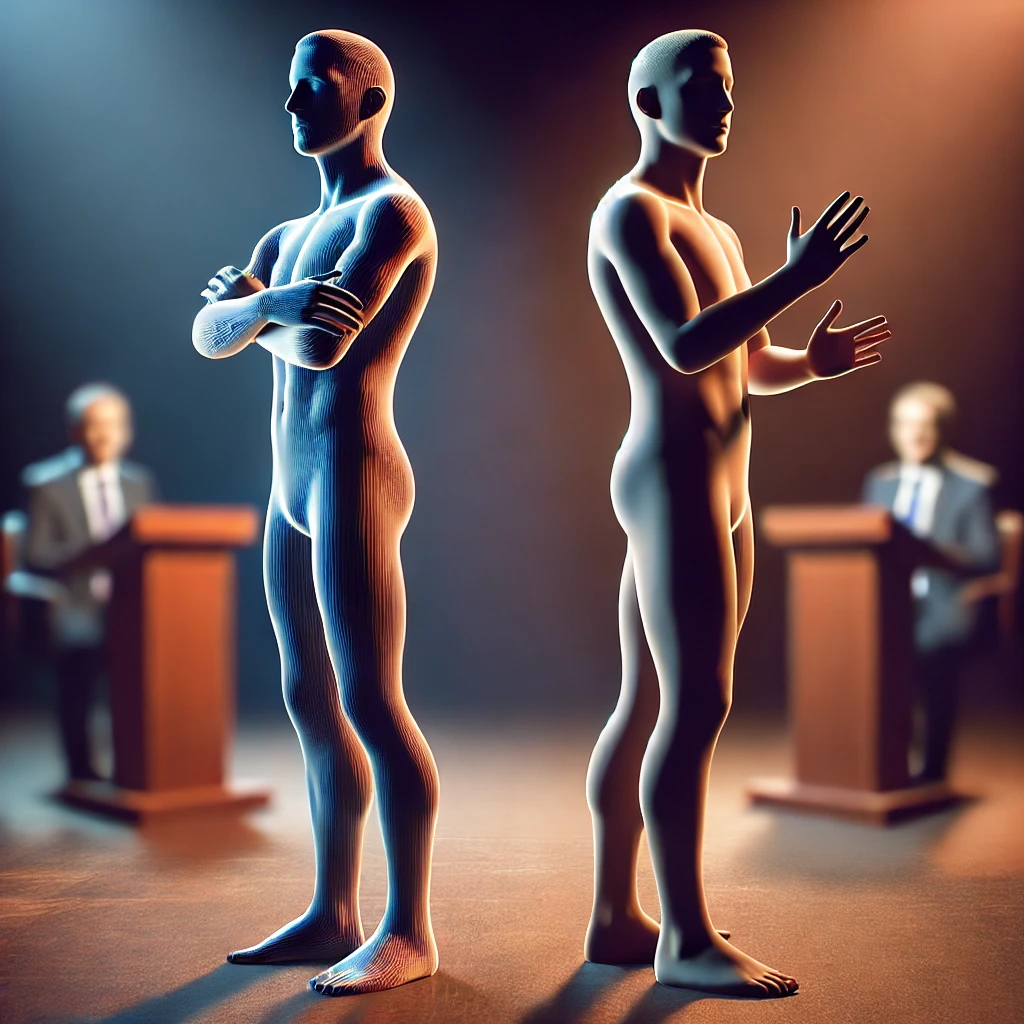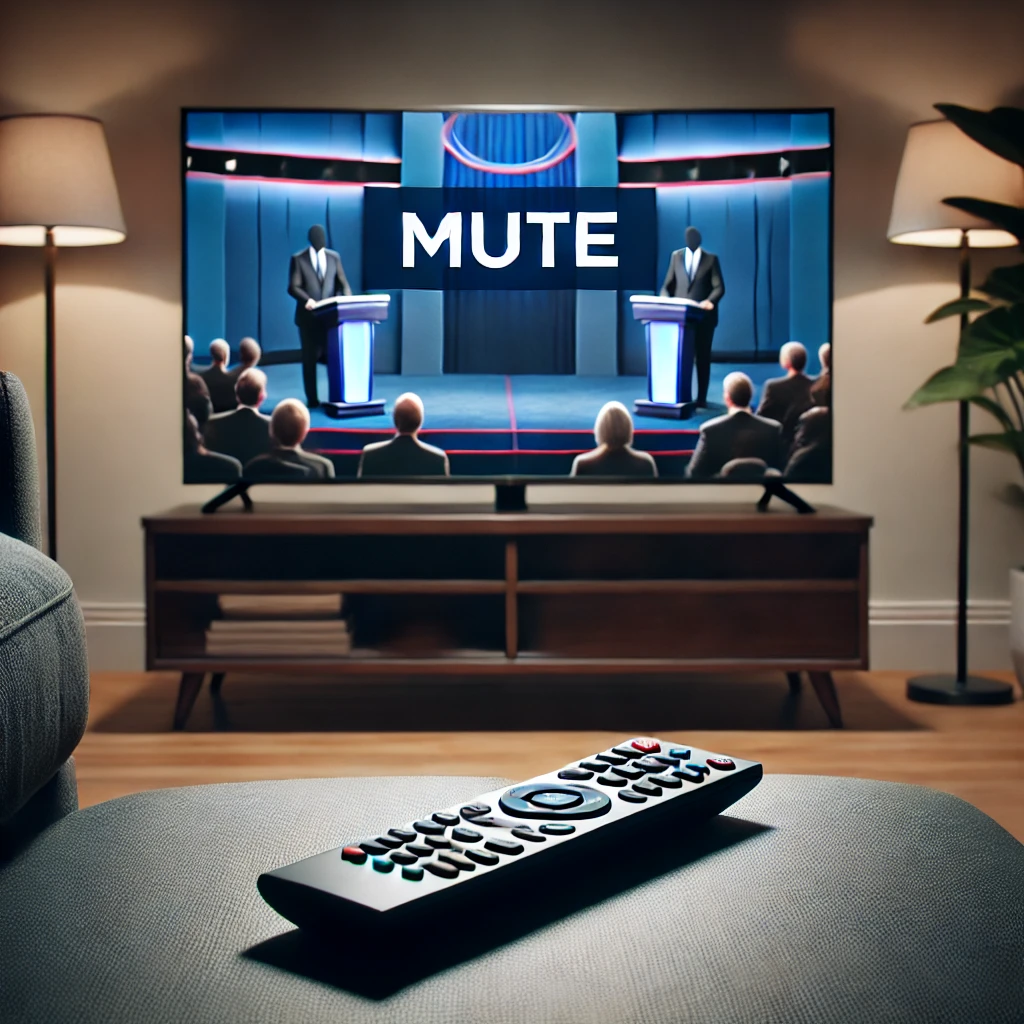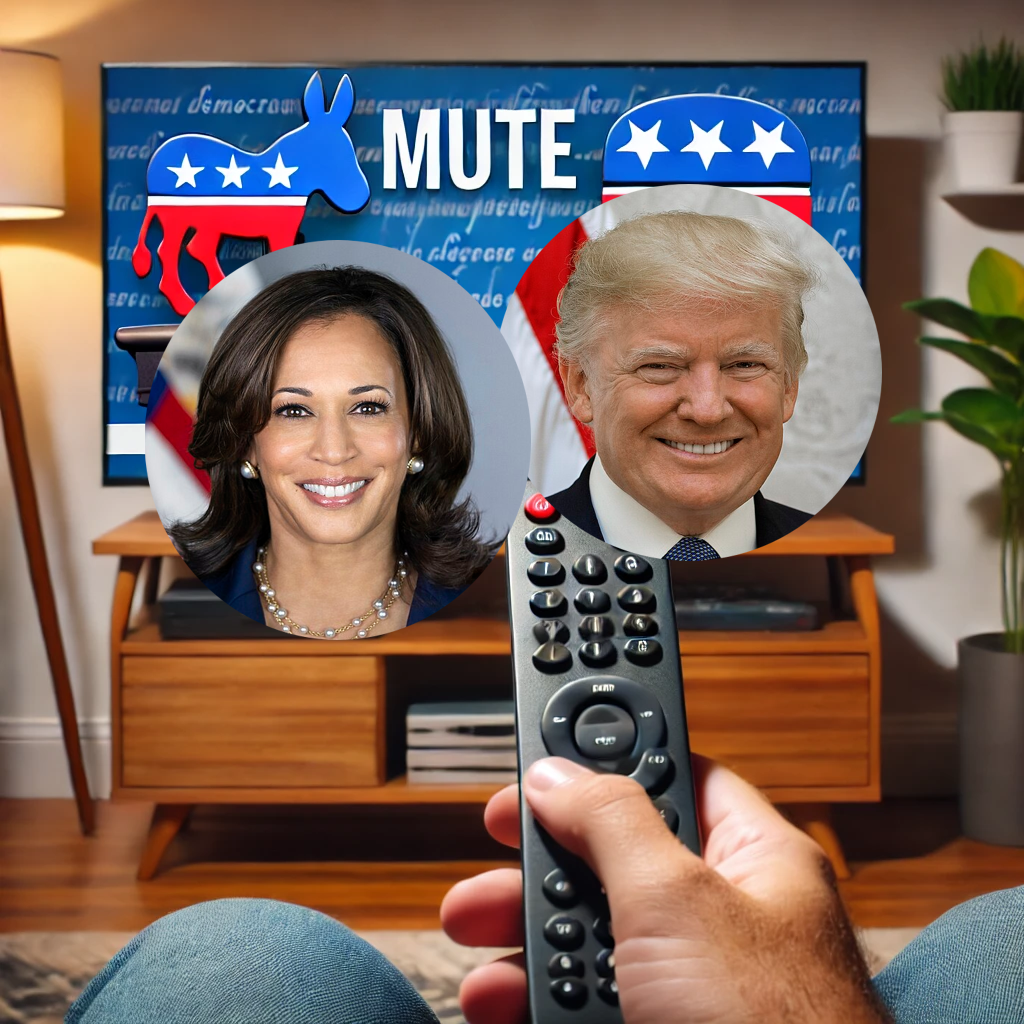The highly anticipated debate between Vice President Kamala Harris and former President Donald Trump is expected to draw millions of viewers tonight. It promises to be a spectacle of sharp exchanges and verbal sparring, but there’s a unique approach to watching that might offer deeper insights into the candidates: turning off the sound. Watching the debate on mute allows viewers to focus solely on the body language of the candidates, which can reveal far more about their honesty, confidence, and intentions than words alone.

Body language is a powerful tool of communication. Research shows that much of what we understand from human interaction comes from nonverbal cues—things like posture, facial expressions, and gestures. In high-stakes settings like a political debate, candidates are carefully trained to articulate their points, sometimes dodging uncomfortable questions or giving polished, rehearsed answers. However, their bodies often give away signals they can’t control, offering viewers clues about what they might really be thinking or feeling.

When people speak, they often use body language unconsciously. A slight shift in posture, a forced smile, or a fleeting look of discomfort can all betray deeper emotions that words may not reveal. Watching the debate without the distraction of rhetoric allows you to pick up on these subtle cues. Without sound, you can focus on how each candidate holds themselves, how they react to difficult moments, and how their movements support—or contradict—their spoken words.

Kamala Harris and Donald Trump are both experienced in the political arena, and both are known for their distinctive communication styles. Trump, famous for his bombastic, larger-than-life persona, often commands the stage with wide gestures and intense eye contact. His body language has always been a key part of his political identity. Harris, on the other hand, often projects poise and control, using calm movements and steady facial expressions to convey her message. Watching them tonight without sound allows viewers to notice the nuances of their physical behavior and determine who is genuinely confident in their positions.

Facial expressions are particularly revealing in debates. Even the smallest of expressions can offer a window into a candidate’s true feelings. A brief grimace, a raised eyebrow, or a clenched jaw can signal stress, irritation, or disbelief, often without the candidate even realizing they’ve given anything away. Harris’s ability to maintain her composure under fire will be something to watch closely. Trump’s expressions, known for their vividness, may tell their own story about his mood and strategy throughout the night.

Watching with the volume off also eliminates the influence of tone of voice, which can significantly affect how viewers interpret what is being said. Both Trump and Harris have mastered the art of using tone to sway an audience. Trump often uses a forceful, commanding tone, while Harris opts for measured, calm delivery. By turning off the sound, viewers can strip away these vocal techniques and focus entirely on body language to assess how sincere and truthful each candidate appears.

Debates are full of moments when candidates feel under pressure, and body language often becomes defensive in such moments. Small, instinctive movements, like crossing arms, shifting weight, or turning slightly away from the opponent, can indicate discomfort or a desire to protect oneself from criticism. Trump, known for his brash and combative style, may try to physically assert dominance on stage, while Harris could opt for more controlled movements to demonstrate her readiness to handle the pressure. Watching these dynamics in silence can offer real insight into who is more confident and who may be feeling on edge.

Without sound, you also get a clearer view of how the candidates react to each other. Eye contact, for example, is a major indicator of confidence and engagement. A candidate who looks directly at their opponent or the camera is likely feeling sure of their message, while someone who avoids eye contact may be feeling uncomfortable or evasive. Throughout the debate, the ways in which Harris and Trump interact through their eye contact—or lack thereof—will be telling.

Turning the volume off for a political debate might seem like an unusual idea, but it’s an approach that allows viewers to cut through the noise of political spin and focus on the deeper, often hidden truths. In debates, words are crafted, rehearsed, and carefully controlled. But body language is far harder to manipulate. It’s in the smallest, most natural movements that we can find out who is really telling the truth and who is simply putting on a show.

Tonight’s debate will no doubt be filled with memorable quotes and powerful rhetoric, but by watching it without the distraction of sound, you give yourself the chance to analyze the candidates from a different perspective. Their movements, expressions, and gestures will tell a story that their words might obscure. As viewers seek to understand who is the more trustworthy candidate, focusing on body language could provide the clearest answers.





